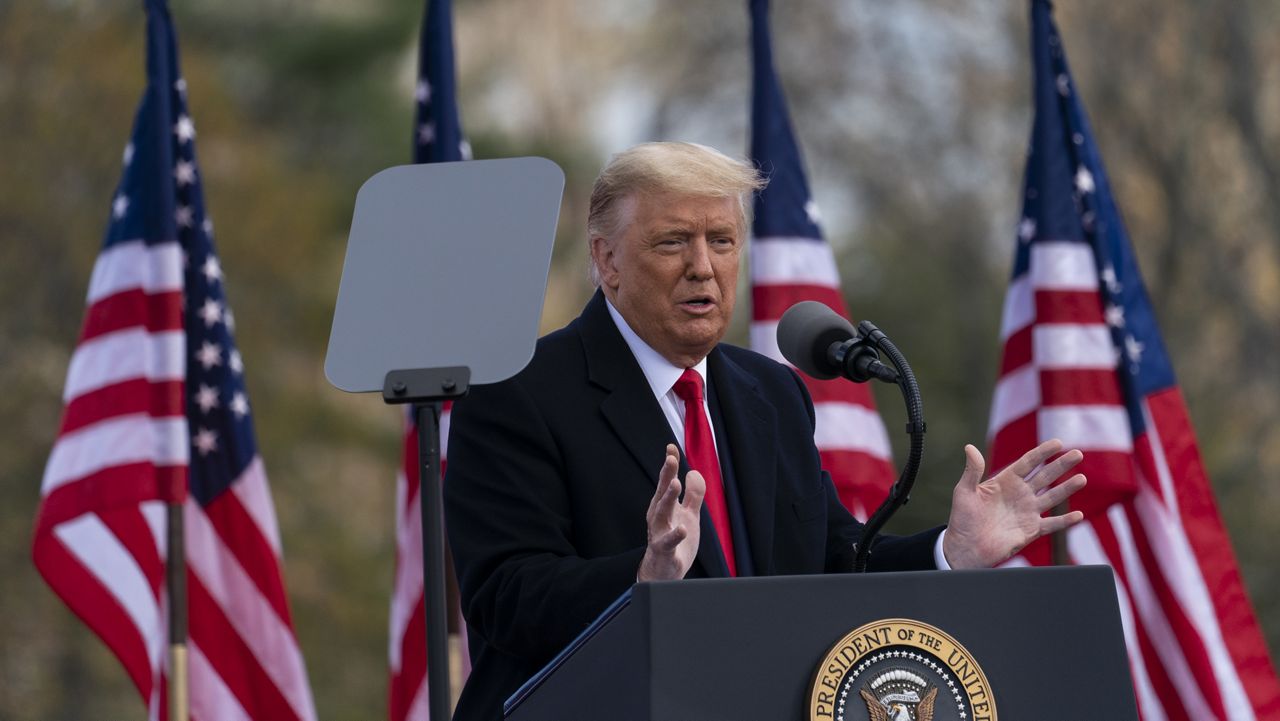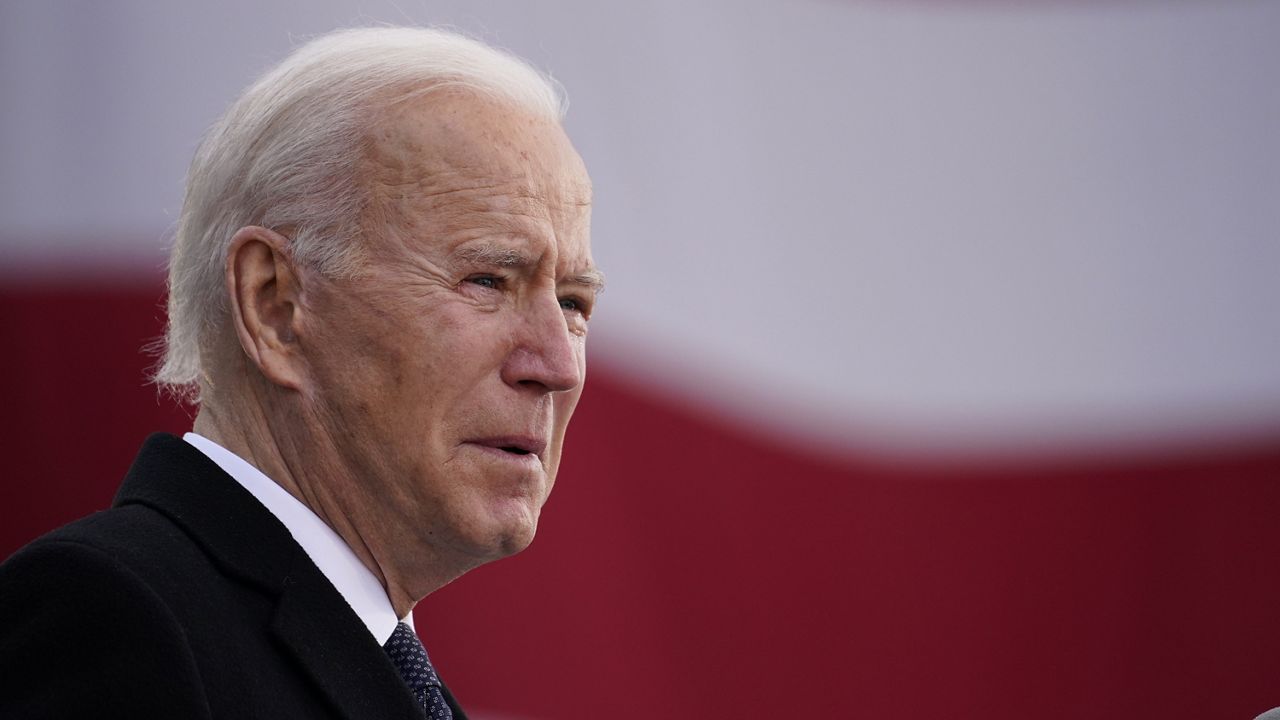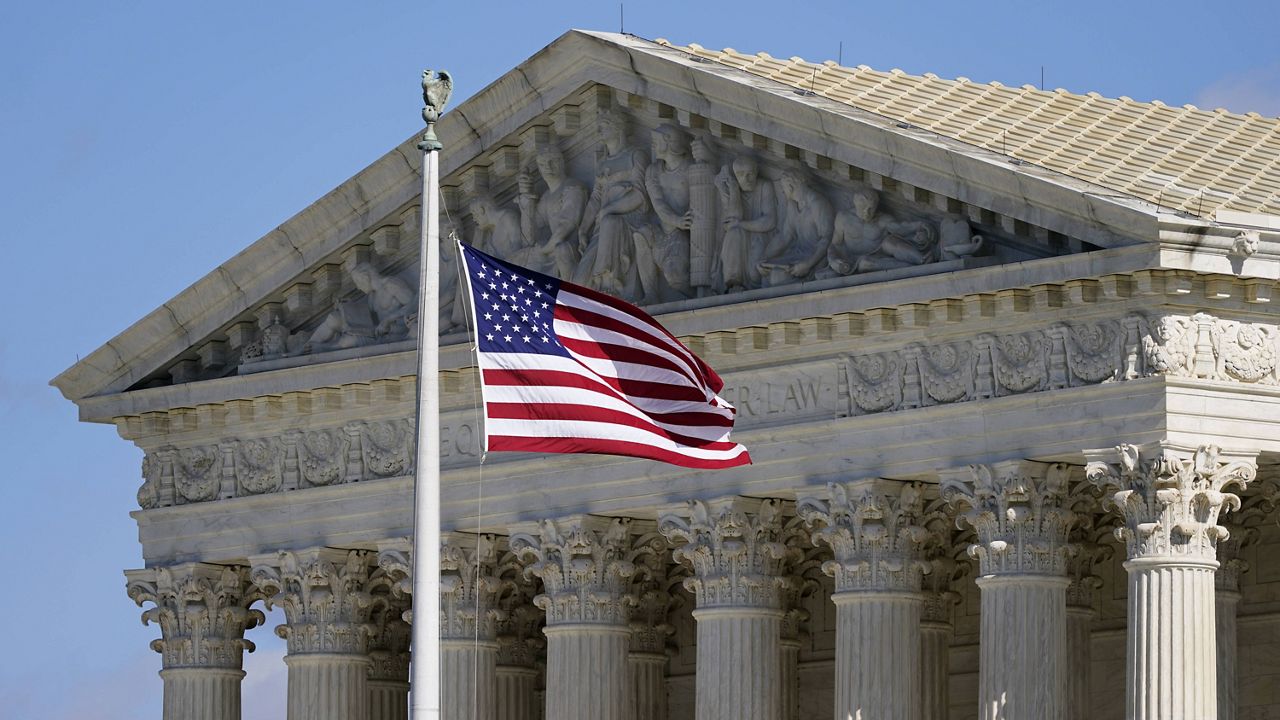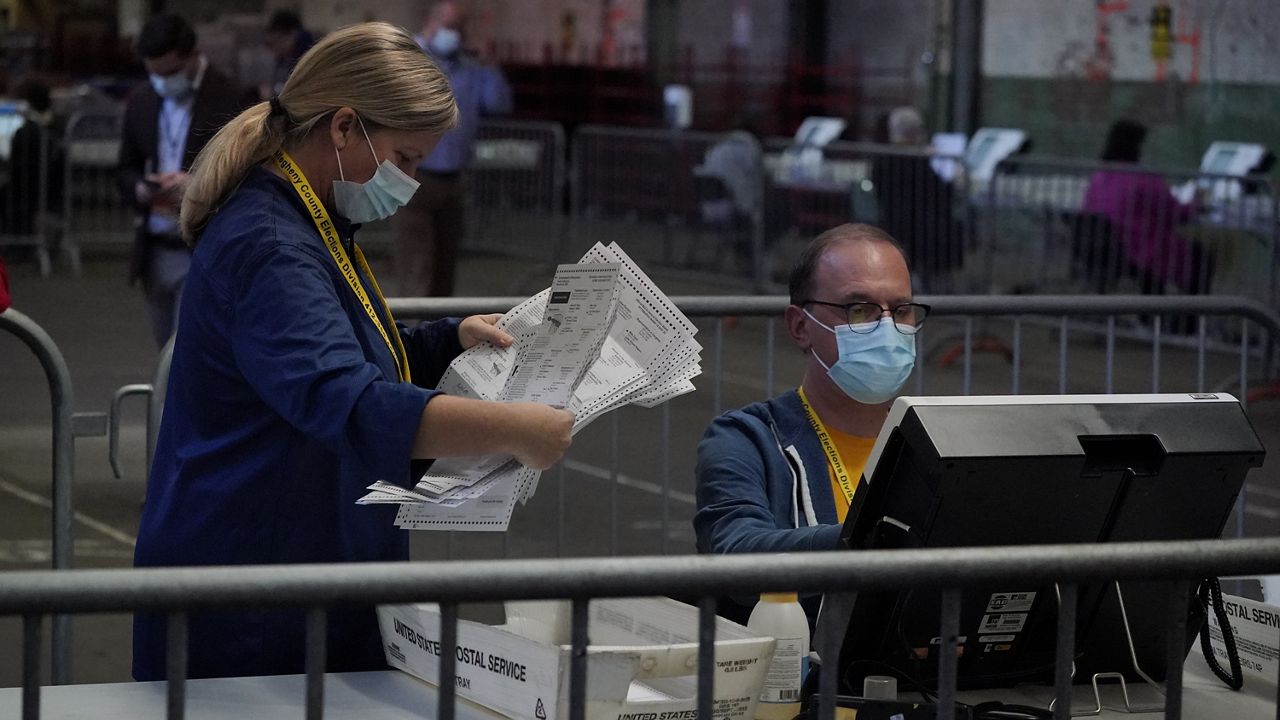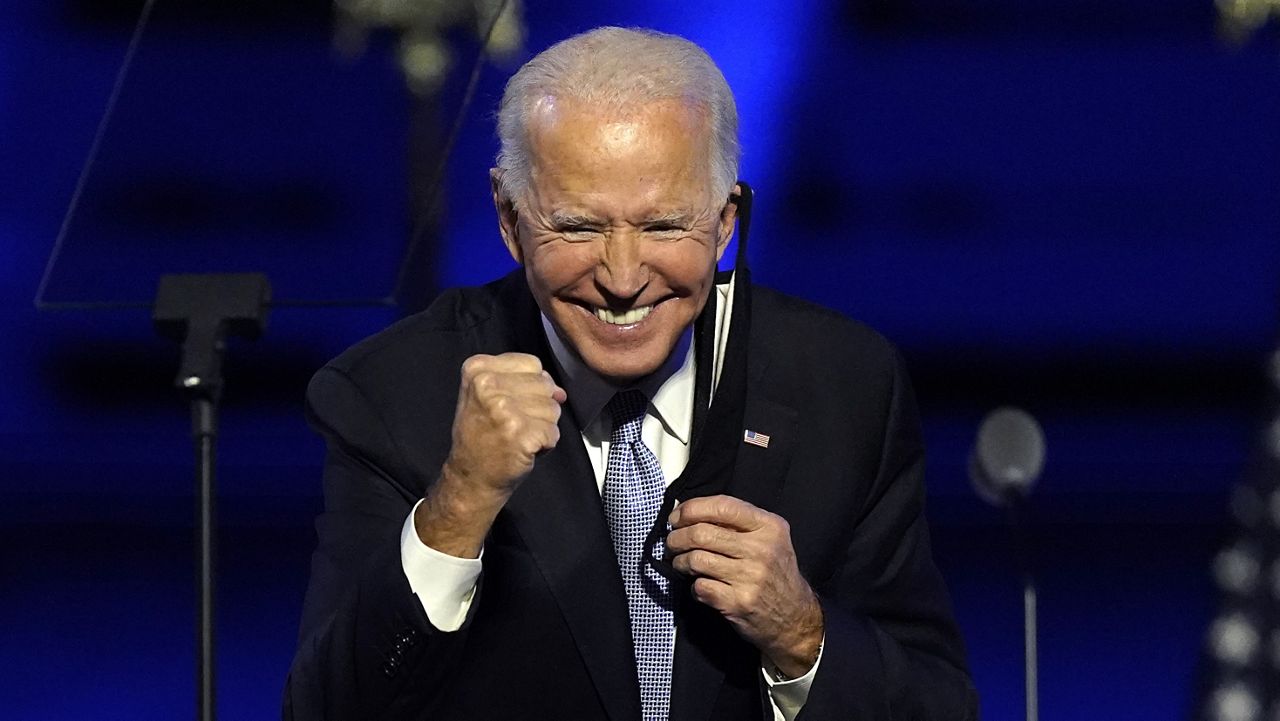In 2016, then-candidate Donald Trump shocked the political world when he won Pennsylvania, a longtime democratic stronghold, by less than 1% of votes cast, about 44,000 votes.
In 2020, the Keystone State could be the most crucial for President Trump's reelection chances.
According to FiveThirtyEight, Trump only has about a 2% chance of winning the Electoral College if he loses Pennsylvania and its 20 electoral votes – compared to about a 30% chance for Democratic presidential candidate Biden should he lose the state. A recent polling average shows Biden leading in the state, but polls have the former vice president holds a slimmer lead in Pennsylvania than he does in other states that Trump won in 2016, such as Wisconsin or Michigan.
With the election down to the final days, Trump’s closing sprint includes four stops in Pennsylvania on Saturday and nearly a dozen events in the final 48 hours across states he carried in 2016.
At his first stop in Pennsylvania, Trump lamented the fact that we may not know who will win the election on Nov. 3, making unfounded claims that "very bad things" can happen if votes are counted after Election Day and lobbing criticism at the Supreme Court.
"This is a terrible thing that they've done to our country," Trump said. "And that's the United States Supreme Court I'm talking about. That is a terrible, political, horrible decision that they made. We're gonna be waiting, Nov. 3 is gonna come and go, and we're not gonna know, and you're gonna have bedlam in our country."
"This is a horrible thing that the United States Supreme Court has done to our country, and I say it, and I say it loud, and I say it proud," he added.
It's worth noting that Trump has nominated 3 current Supreme Court Justices – both Justices Gorsuch and Kavanaugh have made varying rulings on election-related cases in recent days. The newly-appointed Justice Amy Coney Barrett did not participate.
Trump also claimed that "we're rounding that turn" on the coronavirus pandemic, one day after the United States set a world record for the highest number of new cases reported in a single day since the coronavirus pandemic began.
The president spoke Saturday near the Pennsylvania site where George Washington had his headquarters before he crossed the Delaware River. Trump said this election has the potential to be a similarly momentous event.
In three days, the president said, “this is the state that will save the American dream.” He predicted victory in Pennsylvania.
Trump made an aggressive play for pivotal Pennsylvania, focusing largely on his white, working-class base. His first of four scheduled stops in Pennsylvania was in a small town in Bucks County on the eastern edge of the state.
Repeating what has become a consistent part of his closing message, Trump raised baseless concerns about election fraud, pointing specifically at Philadelphia, a city whose large African American population is key to Biden’s fate in the state.
“They say you have to be very, very careful — what happens in Philadelphia,” Trump charged. “Everybody has to watch.”
The president also railed against a recent Supreme Court ruling that will allow Pennsylvania to count mail ballots received as many as three days after polls close.
The extra time, Trump alleged without evidence, would allow for fraud and potentially deny him a win in the state. “What’s going on?” he asked during a late afternoon rally in Reading, Pennsylvania. “That was a very disappointing opinion, but I’ve had many disappointing opinions from the Supreme Court.”
Several studies, including one commissioned by Trump himself, have failed to uncover any significant examples of election fraud. Good-government advocacy groups are concerned that the president’s repeated calls for his supporters to monitor the polls may lead to widespread voter intimidation.
Republicans are betting that Trump can win a second term by driving up turnout among his strongest supporters — white, noncollege-educated men and rural voters — while limiting Biden’s advantage with Blacks and Latinos. Democrats in several swing states worry that voters of color may not be excited enough about Biden to show up in the numbers they need.
At an evening rally in Butler, Pennsylvania, Trump announced that he had issued a memorandum that calls on government agencies to determine fracking’s impact on the economy and trade and the costs of banning the oil and gas extraction through fracking.
The president has repeatedly charged that Biden will end fracking — a big industry in Pennsylvania and other states — even as the former vice president has said that he does not support a ban on fracking.
“In other words, if one of these maniacs come along and they say we’re gonna end fracking, we’re gonna destroy the Commonwealth of Pennsylvania,” Trump said in announcing his memorandum. “You can say, sorry about that.”
Earlier in the day in a small town in Bucks County on the eastern edge of the state, Trump raised baseless concerns about election fraud, pointing specifically at Philadelphia, a city whose large African American population is key to Biden’s fate in the state.
“They say you have to be very, very careful — what happens in Philadelphia,” Trump charged. “Everybody has to watch.”
Republicans are betting that Trump can win a second term by driving up turnout among his strongest supporters — white, noncollege-educated men and rural voters — while limiting Biden’s advantage with Blacks and Latinos. Democrats in several swing states worry that voters of color may not be excited enough about Biden to show up in the numbers they need.
Trump, who narrowly won Pennsylvania in 2016, is holding four events across the state Saturday as he aims to keep it in his column. Without the state, his path to 270 electoral votes grows much more challenging.
Trump narrowly lost Bucks County in the Philadelphia exurbs in 2016. He hopes to at least keep down Democrat Joe Biden’s margins in that part of the state while running up the score in more rural areas.
Earlier this month in Erie, Trump told attendees at a rally that Biden would “abolish Pennsylvania energy” and that mining would be “totally extinguished," hitting on Biden's remarks about the oil industry at the final presidential debate.
"We think Pennsylvania’s looking fantastic," Trump said to reporters on Friday. “If Pennsylvania didn’t frack, you wouldn’t have Pennsylvania, believe me.”
Biden has denied that he would end fracking, specifying that he would block fracking on federal lands, and said that his comments about the oil industry were about ending subsidies while supporting renewable energy initiatives. Trump has hammered him over these comments.
"He is going to destroy the oil industry," Trump said during the debate. "Will you remember that, Texas? Will you remember that, Pennsylvania, Oklahoma?"
Biden will close out his campaign on Monday in Pennsylvania, the state where he was born and the one he’s visited more than any other in his campaign. The Biden team announced that Biden, his wife, Jill, his running mate, Sen. Kamala Harris, and her husband, Doug Emhoff, plan to “fan out across all four corners of the state.”
The Associated Press contributed to this report.




